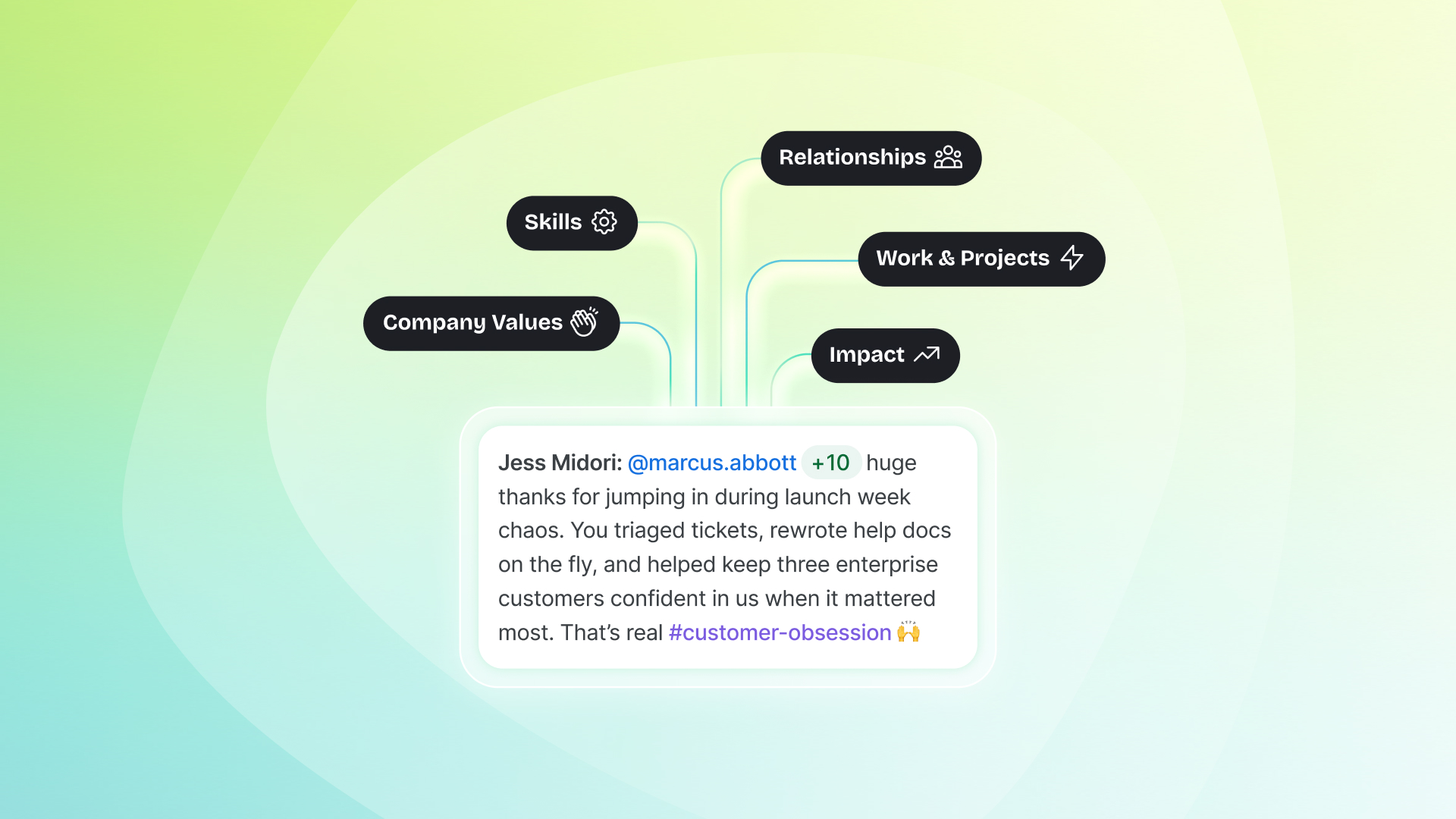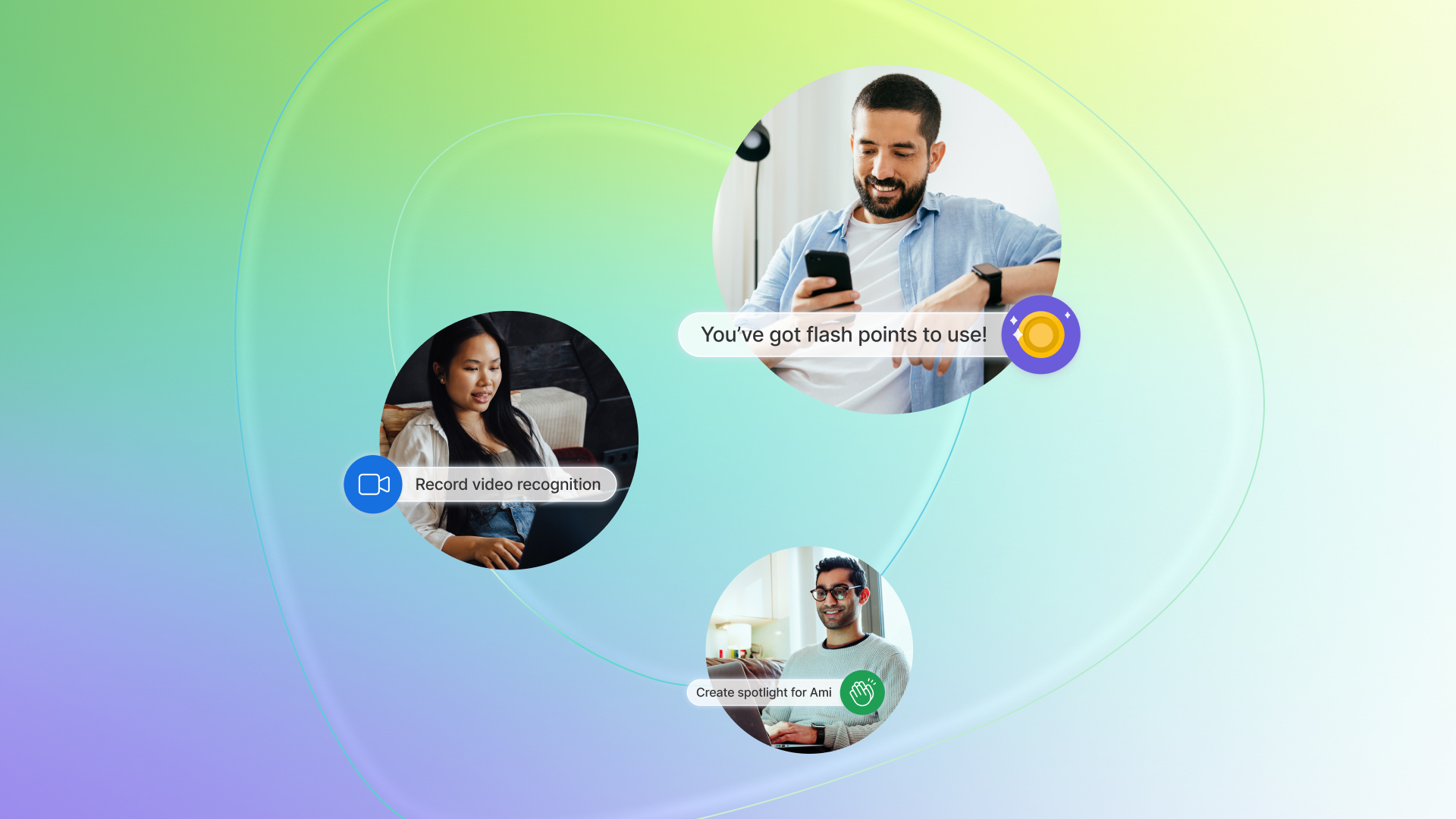Work Relationships Aren’t Just a Nice-to-Have. They’re a Business Necessity.

If you’ve ever taken Gallup’s famous engagement survey, you might remember an unusual question: Do you have a best friend at work?
It’s a simple question. But it comes with surprisingly complex implications. A lot has been said on social media and in think pieces about what this question is really getting at. Should work relationships stay strictly professional, or is the office another kind of family?
No matter where you stand on this spectrum, the data doesn’t lie: peer relationships in the workplace are critical. And their importance has only skyrocketed since 2020, as remote work reshaped how we collaborate, communicate, and connect.
The growing problem of workplace loneliness
Harvard Business Review recently sounded the alarm on an epidemic of workplace loneliness. More than one in five employees globally report feeling isolated—a number that significantly impacts absenteeism, engagement, and turnover. When your employees are lonely, productivity, innovation, and job satisfaction take a nosedive.
Don’t believe me? Gallup has released a stream of new insights over the past few years that reinforce the growing importance of strong employee to employee relationships. Strong peer-to-peer relationships at work aren’t just a nice-to-have; they’re a proven driver of business outcomes.
Let’s break it down. When employees have meaningful relationships at work, they’re more likely to:
- Be engaged with peers and customers
- Work more productively
- Commit fewer errors and improve reliability
- Think creatively and push boundaries
- Recommend their workplace to others
- Stick around longer
- Have fun
Fostering the connections between your employees doesn’t just boost morale—it moves the needle on actual business results.

What are winning companies doing?
So, if facilitating strong peer-to-peer working relationships is correlated to driving better business outcomes, what sets companies apart? Here’s how they do it—and how you can do the same.
Leadership: Walk the talk
Let’s start at the top. Leaders need to set the tone. It’s not enough to pay lip service to workplace connections—you’ve got to lead by example and make decisions your team isn’t in a position to make. Want employees to feel like they belong? Show them how it’s done.
We’ve covered this in a previous post: leadership plays a key role in building an employee’s trust and connection to your organization. That includes celebrating key moments like birthdays and anniversaries, recognizing and rewarding great work, and consistently communicating priorities, goals, and workplace values.
Recommended reading: The Essential Employee Engagement Guide
Place and space: Digital or physical, it matters
Even in a hybrid or remote setup, connection needs a home. And endless Slack channels and back-to-back Zoom marathons don’t cut it.
If your calendar doesn’t leave room for organic connection, you’re setting everyone up for failure. You need to intentionally create space—both in schedules and in mindsets—for genuine interaction.
Consider local hub meetups or virtual coffee breaks that aren’t tied to work tasks. When budgets are tight or proximity is challenging, casual, low-cost gatherings can be just as effective. The key is to carve out time for employees to bond and build relationships outside of their day-to-day roles.
Recommended reading: 10 Dead Simple Ways to Improve Your Company Culture
Let your tech stack do the heavy lifting
The right tools make all the difference. A modern platform like Bonusly, which has been championing meaningful employee recognition for more than a decade, is an essential tool in helping your employees build better workplace relationships.
Through shared stories of achievements, employee milestone celebrations, and the ability to recognize wins both big and small, employees can see and feel the very real impact their peers have on one another and the broader team. It’s a simple but powerful way to strengthen the bonds between your team.
Want to see how? Schedule a demo with our team to learn more.
Put your money where your mouth is
Here’s a little honesty: remember all those fancy office perks from the 2010s? Free lunches, stocked snack bars, Friday beers? They were fun, sure, but many of those program funds have been put on ice since moving to remote work.
Now’s the time to repurpose those budgets toward initiatives that nurture your culture. Investing in the employee experience isn’t just a feel-good move, it’s a strategic one that improves culture, employee engagement and overall performance.
Strong cultures don’t happen by accident. They’re built. And yes, that takes investment.
See for yourself: Cost of Turnover Calculator
Democratize recognition and culture-building
Culture isn’t a top-down mandate. The best companies empower everyone to contribute and build toward the future.
That’s where tools like Bonusly come in. The idea is simple but revolutionary: instead of leaving recognition solely to managers, give that power to the employees themselves, and let them highlight each other’s contributions. With our approach to peer-to-peer recognition, employees can send redeemable recognition points to peers, accompanied by genuine, meaningful messages of appreciation.
In turn, those points can be redeemed for anything that matters to the recipient—whether it’s a gift card, charitable donation, an experience or recycling their points to pass along to someone else. It's a virtuous cycle that spreads positivity, builds a culture of recognition, and deeply strengthens the bond between peers.
When recognition is done right, every team member is empowered to highlight and reinforce the behaviors that matter—the behaviors that drive tangible business outcomes.
And guess what? By sharing those stories publicly, leaders and managers get a more comprehensive view of their teams, helping them coach more effectively.
The bottom line? Peer-to-peer relationships move your culture—and company—forward.
Workplace relationships aren’t just a nice perk—they’re foundational to your company’s success. From higher productivity to stronger retention, the benefits are clear.
What will your company do to foster stronger connections?








